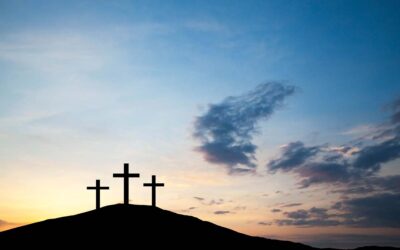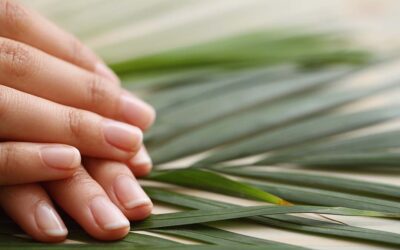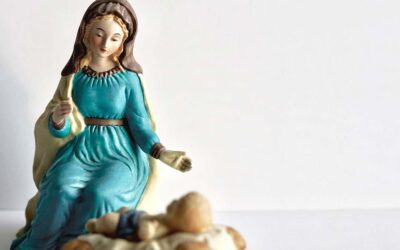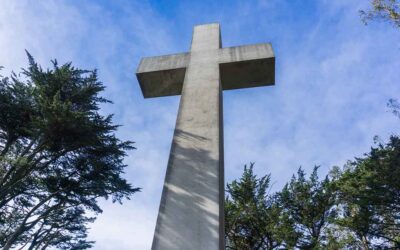
Collect For Epiphany 3
1 Corinthians 1: 10-18
John 17: 20 – 24
The annual Week of Christian Unity seeks to respond to the prayer of Jesus the night before He died, as recorded in John 17,– ‘that they may become completely one’. It was first observed in 1908 by an Anglican Franciscan priest, and a Franciscan nun; over the years it gained wider recognition and is now celebrated in January worldwide with prayers and interdenominational worship services.
Writing in the Irish Times, Bishop Michael Burrows said ‘…it is the powerful reality of a common family that Christian unity dweek seeks to celebrate, and which no prejudice or theological contention should ever put asunder. (Our) challenge is to walk together in pursuit of truth and justice, learning from one another’s strengths’. He also said, though, that he didn’t expect to see ‘Church unity happen during our lifetime’.
But while initially (reluctantly) agreeing with his somewhat pessimistic prediction on the basis of current evidence from media and suchlike, we need to ask what Christian Unity would actually look like – and perhaps the situation isn’t as bleak as it first appears. I think we are actually closer than we have been for a very long time.
Any artist would tell you what happens if you mix all the colours of the palette together. The result is a murky brown. On the other hand, if instead you pass light through a prism, you get a beautiful rainbow. White light consists of all of these – take any one away, and the light is not as pure or bright. I suspect no-one would want our worship to be ‘one size fits all’. We find inspiration and richness in diversity – Paul emphasises the need on many occasions, most specifically in 1 Corinthians 12, writing about the Church as a body consisting of many parts, each with their own function.
We are blessed that in Christianity there are so many different traditions, languages and cultures – but when we proclaim ‘Jesus is Lord’, we are a united Church in many areas irrespective of those differences – indeed, because of them and the pure, clear light they bring when combined.
Where prayer for unity is needed, however, is in those traditions and Gospel interpretations that proclaim themselves superior and dismiss or reject other views. All too often, such beliefs have little or no basis in Scripture, but stem from ignorance or self-interested search for power. If we are to see unity grow even closer, in our lifetime, we must challenge those aspects which deny the comprehensive, universal and unconditional love our Father has for all His creation.
Previous Posts
Praying Together 20th April 2025
So together, morning, noon and night, we shout Thanks be to God! He gives us the victory through our Lord Jesus Christ.
Praying Together 13th April 2025
He is sinless, we were not – but He takes our sin unto Himself, allowing us the freedom to choose to serve His purpose rather than our own
Praying Together 6th April 2025
Everyone runs in her own way, or his own way. And where does the power come from, to see the race to its end? From within. Jesus said, ‘Behold, the Kingdom of God is within you.
Praying Together 30th March 2025
As Julian of Norwich wrote, ‘the example of a mother’s service is closest, most willing, and most sure because it is most true’, and thus we use that example as part of our Lenten journey.
Praying Together 23rd March 2025
God gives us the freedom to make that choice, and will always offer us another chance when we fail, as He did to the barren fig tree.
Praying Together 16 March 2025
Unlike the other tragic heroes, Jesus has no flaw or blemish other than those inflicted by others: the scars on His back, the thorn-blood on His forehead, the betrayal by His friend.
Praying Together March 9th 2025
God’s demand for perfection need not discourage you in the least in your present attempts to be good, or even in your present failures.
Praying Together 2nd March 2025
God of the nations, whose sovereign rule brings justice and peace, have mercy on our broken and divided world.
Praying Together 23 February 2025
Meditation for the Second Sunday before Lent CollectAlmighty God,you have created the heavens and the earthand made us in your own image:Teach us to discern your hand in all your worksand your likeness in all your children;through Jesus Christ our Lord,who with you...
Praying Together 16th February 2025
And if you accept Him as Lord, allow Him to lead you as you walk into the future without looking back, and do what He has equipped you to do as His body on earth
Praying Together 9th February 2025
We are all asked to have the faith to put out into deep water, but we must remember that we will never be on our own. Peter’s ministry was made possible by the power of the Holy Spirit, as will ours.
Praying Together 2nd February 2025
We are all called to be the Body of Christ in His entirety – and we are to take the example of all ‘Saints’ who have gone before, both male and female, as models of our required behaviour.











